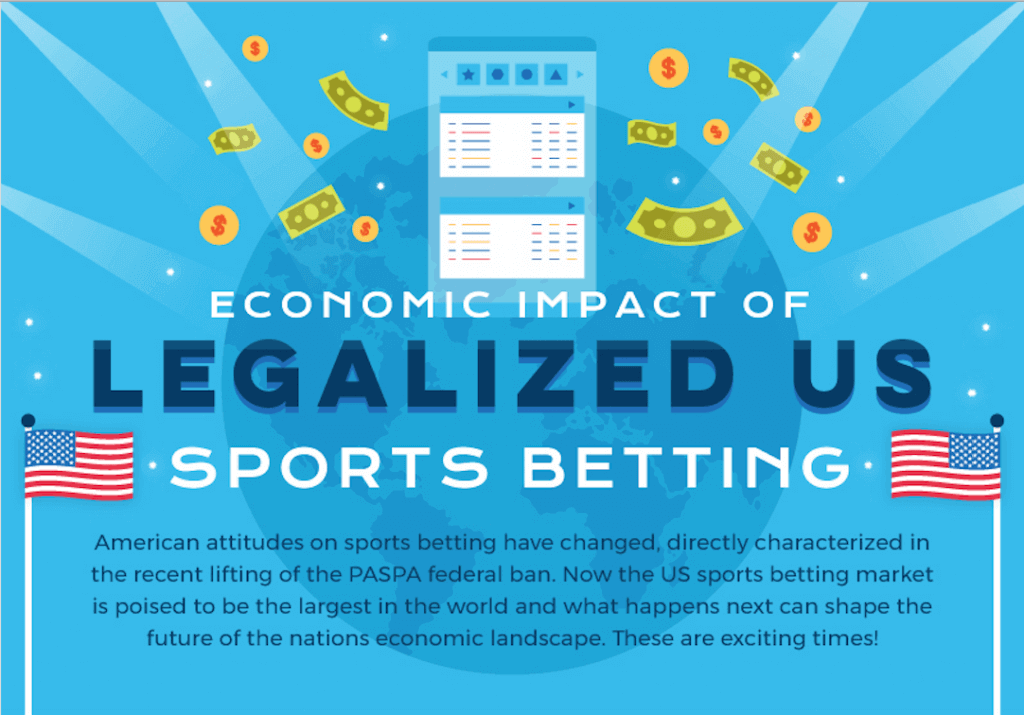- Gambling Economic Benefits Definition
- Gambling Economic Benefits Coronavirus
- Gambling Economic Benefits Companies
Another important socioeconomic and political benefit is tax revenue generated from casinos, both online and land-based. States with legalized gambling impose small tax percentages mostly at or below 5%, which subsidize other welfare activities. The main argument that gambling promoters use is the ability to improve the overall economic situation by allowing casinos to work because it creates more jobs, tax. Many states have approved commercial casino gambling primarily because they see it as a tool for economic growth. The greatest perceived benefits are increased employment, greater tax revenue to state and local governments, and growth in local retail sales. Consumer Benefits Despite the commonnotionthatthe key economicbenefits of legalized gambling relate to employment and tax revenues, economists also stress the benefits to consumers who gain utilityfrombeingabletogamble(27–30).Severalresearchers haveattemptedtomeasurethisBconsumersurplus^andaddin other benefits such as lower prices for.
Casino gaming has become more popular over the years, and somecountries like the United States of America or China have experienced a considerable growth in casino gaming. The growth in casino gaming is connected to economically unstable locations. Some researchers say casino gambling can be a future development strategy for economically wrestling areas, both the online casinos which offer perks like the bonus offer at Genting and the land-based casinos. The impact of casino gaming can extend to other economic areas such as income maintenance premium beneficiary or others. In the following paragraphs, the positive economic impacts and benefits of casinos will be explored and discussed.
MORE JOB OPPORTUNITIES
New casinos need new employees, so opening casinos in local areas provides more job opportunities for town people. The jobs do not require high skills, and even though the salaries can be lower, the tips balance to average pay, and sometimes, for some occupational groups, even above the average pay. In addition, employees working in unionized casinos have ten times the national average salary and full health coverage. These reasons included, casino jobs are a good opportunity for people wanting to work in a fun working environment with good salaries.

ECONOMIC DEVELOPMENT
Economic development is another benefit of casinos. Although it is not a part of typical income statistics, the per-capita income provides an important measure of economic stability. In areas with casinos, per-capita income increased nearly 5% faster than in non-casino areas. The result of 5 percentage is very significant. In other words, in addition to the local economy, the local residents gain benefits as well.
GAMBLING – A POWERFUL ECONOMIC DEVELOPMENT TOOL
Gambling and casinos represent extremely powerful economic development tools. What causes the success of economic development are projects that enlarge a region's net exports. In other words, the only way the income can increase is that the amount of goods which are exported needs to increase or the number of imported goods and services are decreased.
BENEFITS FOR THE CITY

Another benefit of casinos is that they pay the city greater amount of tax. There are other benefits for the city. For example, once the casino is opened, other businesses like new restaurants, pubs, hotels, theme parks, gas stations. In addition, these businesses bring more earnings to the city, more customers, tourists, more taxes, thus more profits which make the city wealthier.
ENTERTAINMENT
Casinos and gambling have existed for a long time as a way of entertainment. There are many advantages of casinos and gambling. Relaxation, the positive competitive feeling with the objective to win! However, one should not forget that there is always a risk of losing the money. So play with discipline and have fun. Win if you can, have fun even if you lose.
Casinos and gambling have been one of the favorite forms of entertainment. In the beginning, it was a privilege of the rich only. Nowadays, everybody can enjoy good casinos and gambling. Opening a casino in a city is highly beneficial to the city and its residents. It provides more job opportunities for locals, it boosts tourism, triggers opening other businesses, such as restaurants, pubs, gas stations, disco clubs, hotels, shopping malls. In general, casinos are responsible for economic development through taxes in every possible way. New jobs, tourists visiting, more money circulating through town makes the town and its people a lot happier and wealthier.
EconomicsIntroduction
Gambling has gone from a pastime activity to a significant economic driver in the United States.
Although there are still certain restrictions on online gambling, presently, gambling is quite legal in some forms in many states except Hawaii and Utah.
Before 1988, gambling was legal in only two states – Nevada, New Jersey, and some Native American reservations.
However, by 2003, there were over 39 states allowing casino gambling and offering legal gambling regulations of some kind. There was also an explosion in the number of start-up casino sites offering online gambling services to Americans.
Due to the increased number of businesses investing in the gaming sector, and the number of Americans gambling, the industry recorded a boost in its industry revenue. From $8.7 billion in 1990, it rose to a record high of $79.42 billion in 2018.
Four forms of gambling contribute to the United States gambling industry revenue; State lotteries, Commerical Casinos, Native American Casinos, and Online casinos.
According to the American Gaming Association, 'In 2016, gaming taxes contributed $8.85 billion in state and local tax revenues.'
Legalizing gambling in the United States comes with several benefits and disadvantages. While some people benefits, other entities bear the negative brunt of the economic impact of gambling.
Naturally, the economic winners are the businesses involved in gambling and the consumers who benefit from gambling services.
For most critics, the main loser of legalized gambling is the society, tribal casinos, and those involved in the sector before it became mainstream.
Over the years, different questions and concerns have been raised by customers and critics alike over the issue of legalized gambling. How many states allow casinos? Should gambling be legalized?
This article will attempt to shed light on this issue and look into the economic gains and social costs of gambling.
Social Costs of Gambling
Does legalized gambling constitute a social issue? Research conducted by professionals for the National Gambling Impact Study Commission (NGISC) has shown that gambling has had some negative social impacts. The advent of casinos has caused an increase in crime and suicide rates.
Data from the American Psychiatric Association also stated that about 2.5million adults in the country are pathological gamblers and 3million adults are problem gamblers.
Additional data and research establishing the causal link between casino availability and the incidence of personal bankruptcies, suicide, divorce, and other costly behaviors is, however, not present.
Legal gambling's negative impacts are beyond everyday problems like failed relationships and financial issues like bankruptcy and more. The social effects of gambling extend even to the emotional aspect.
Gambling can affect how we feel, no matter how much or how often we do it. Issues like this have plagued even occasional gamblers.
It could be difficulty sleeping, trouble concentrating at work, spending more than you intended to, regret after gambling, or missing out on important events like spending time with the family or a loved one.
The social costs of gambling are paid by both participants and perpetrators of the trade alike.
However, this is why online casinos and gambling platforms, in general, implement several responsible gambling policies at their sites. This is to ensure that gamblers do not get addicted to gambling.

ECONOMIC DEVELOPMENT
Economic development is another benefit of casinos. Although it is not a part of typical income statistics, the per-capita income provides an important measure of economic stability. In areas with casinos, per-capita income increased nearly 5% faster than in non-casino areas. The result of 5 percentage is very significant. In other words, in addition to the local economy, the local residents gain benefits as well.
GAMBLING – A POWERFUL ECONOMIC DEVELOPMENT TOOL
Gambling and casinos represent extremely powerful economic development tools. What causes the success of economic development are projects that enlarge a region's net exports. In other words, the only way the income can increase is that the amount of goods which are exported needs to increase or the number of imported goods and services are decreased.
BENEFITS FOR THE CITY
Another benefit of casinos is that they pay the city greater amount of tax. There are other benefits for the city. For example, once the casino is opened, other businesses like new restaurants, pubs, hotels, theme parks, gas stations. In addition, these businesses bring more earnings to the city, more customers, tourists, more taxes, thus more profits which make the city wealthier.
ENTERTAINMENT
Casinos and gambling have existed for a long time as a way of entertainment. There are many advantages of casinos and gambling. Relaxation, the positive competitive feeling with the objective to win! However, one should not forget that there is always a risk of losing the money. So play with discipline and have fun. Win if you can, have fun even if you lose.
Casinos and gambling have been one of the favorite forms of entertainment. In the beginning, it was a privilege of the rich only. Nowadays, everybody can enjoy good casinos and gambling. Opening a casino in a city is highly beneficial to the city and its residents. It provides more job opportunities for locals, it boosts tourism, triggers opening other businesses, such as restaurants, pubs, gas stations, disco clubs, hotels, shopping malls. In general, casinos are responsible for economic development through taxes in every possible way. New jobs, tourists visiting, more money circulating through town makes the town and its people a lot happier and wealthier.
EconomicsIntroduction
Gambling has gone from a pastime activity to a significant economic driver in the United States.
Although there are still certain restrictions on online gambling, presently, gambling is quite legal in some forms in many states except Hawaii and Utah.
Before 1988, gambling was legal in only two states – Nevada, New Jersey, and some Native American reservations.
However, by 2003, there were over 39 states allowing casino gambling and offering legal gambling regulations of some kind. There was also an explosion in the number of start-up casino sites offering online gambling services to Americans.
Due to the increased number of businesses investing in the gaming sector, and the number of Americans gambling, the industry recorded a boost in its industry revenue. From $8.7 billion in 1990, it rose to a record high of $79.42 billion in 2018.
Four forms of gambling contribute to the United States gambling industry revenue; State lotteries, Commerical Casinos, Native American Casinos, and Online casinos.
According to the American Gaming Association, 'In 2016, gaming taxes contributed $8.85 billion in state and local tax revenues.'
Legalizing gambling in the United States comes with several benefits and disadvantages. While some people benefits, other entities bear the negative brunt of the economic impact of gambling.
Naturally, the economic winners are the businesses involved in gambling and the consumers who benefit from gambling services.
For most critics, the main loser of legalized gambling is the society, tribal casinos, and those involved in the sector before it became mainstream.
Over the years, different questions and concerns have been raised by customers and critics alike over the issue of legalized gambling. How many states allow casinos? Should gambling be legalized?
This article will attempt to shed light on this issue and look into the economic gains and social costs of gambling.
Social Costs of Gambling
Does legalized gambling constitute a social issue? Research conducted by professionals for the National Gambling Impact Study Commission (NGISC) has shown that gambling has had some negative social impacts. The advent of casinos has caused an increase in crime and suicide rates.
Data from the American Psychiatric Association also stated that about 2.5million adults in the country are pathological gamblers and 3million adults are problem gamblers.
Additional data and research establishing the causal link between casino availability and the incidence of personal bankruptcies, suicide, divorce, and other costly behaviors is, however, not present.
Legal gambling's negative impacts are beyond everyday problems like failed relationships and financial issues like bankruptcy and more. The social effects of gambling extend even to the emotional aspect.
Gambling can affect how we feel, no matter how much or how often we do it. Issues like this have plagued even occasional gamblers.
It could be difficulty sleeping, trouble concentrating at work, spending more than you intended to, regret after gambling, or missing out on important events like spending time with the family or a loved one.
The social costs of gambling are paid by both participants and perpetrators of the trade alike.
However, this is why online casinos and gambling platforms, in general, implement several responsible gambling policies at their sites. This is to ensure that gamblers do not get addicted to gambling.
Positive Effects of Gambling on the Economy
Legalized gambling offers a unique form of entertainment and has served as additional leisure for the entire adult populace.
Many states have legalized gambling, because they see it as a tool for economic development. Gambling has had a positive effect on the economy so far. With the Legalization of gambling, we have seen;
- An increase in employment.
- The considerable tax revenue from legalized gambling is very enabling for the economy.
- Engagement of Local Labor.
- Boost in local retail sales.
There are many more positive effects of legalized gambling on the economy. It is a trade that has an almost infinite demand and supply.
Are Casinos good for the economy?
Gambling does not hurt the economy. Although there have been arguments that casinos trade money and not goods and services, and as such, do not boost the economy.
However, casinos are indeed good for the economy of a country. They pay hefty tax revenues that keep increasing per annum and aids economic development.
Pros of legalizing gambling
Casinos pump a lot of money into their business. Take Las Vegas for example, it has become a center for relaxation and tourism.
Casinos benefit their local areas because people do not only go to casinos to wager; they also buy food and drinks or seek accommodation.
Legalized gambling has profited the local areas where they are situated by boosting retail sales and bringing demand for a slew of various goods and services.
The Legalization of gambling has led to an increase in the number of online international casinos accepting United States players.
Today, players don't have to go to a land-based casino before they enjoy their favorite casino games. There are various safer and legitimate options online for them to choose from.
Even with the restrictions on American financial services and online gambling, do casinos take credit cards? Of course, and other payment methods too.
Gambling Economic Benefits Definition
It also provides opportunities for consumers and investors alike. People have more options to relax.
Start-ups and young entrepreneurs interested in the gambling industry but do not have enough capital to set up a land-based establishment would find their solutions in internet gambling.
Gambling Economic Benefits Coronavirus
Conclusion
The Legalization of gambling comes with various advantages and shortcomings. Just like any other enterprise, there are economic winners and losers.
The winners include the economy, gambling-related businesses, and consumers- the major beneficiary of the industry's competitive market.
The main drawback of legalized gambling is its social effects on the society. Some other economic negatives ascribed to gambling by critics are mainly issues that affect the American market in general.
Gambling Economic Benefits Companies
The truth is that the pros of legalized gambling outweigh the bad.